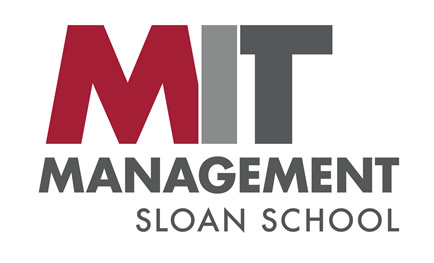« FORTUNE Announces 2020 FORTUNE 500 List, Launches First-Ever "History Of The FORTUNE 500" Data Analytics Visualization Site With Partner Qlik | Main | Chandigarh among 65 Cities rated 3-Star Garbage Free Cities in India; Ambikapur, Rajkot, Surat, Mysuru, Indore, and Navi Mumbai Certified 5-Star. »
May 19, 2020
MIT Researchers Develop Analytics focused on Accelerating COVID-19 Therapeutics Clinical Trials.

CAMBRIDGE, Mass., May 18, 2020 — In response to the COVID-19 pandemic, researchers from the Massachusetts Institute of Technology have published their studies in a COVID-19 special issue of the Harvard Data Science Review. The studies describe new methods for accelerating drug approvals during pandemics and for providing more accurate measures of the probabilities of success for clinical trials of vaccines and other anti-infective therapies.
“Randomized clinical trials are the gold standard for determining the safety and effectiveness of a treatment,” said Andrew Lo, Ph.D., the study’s senior author, and the Charles E. and Susan T. Harris Professor at the MIT Sloan School of Management. In randomized clinical trials, patients are assigned randomly to two groups, one receiving a new treatment and the other receiving a placebo or reference treatment.
“Only when the treatment group shows significant improvement over the control group, will regulators approve the therapy,” explained Lo. “The current process protects the public by minimizing the chances of ‘false positives’ (approving ineffective and unsafe therapies), and by and large, it’s been very successful,” he added.
But there is a trade-off between false positives and false negatives (not approving a safe and effective therapy). So Lo and his collaborators have developed a framework that uses an epidemiological model of COVID-19 to calculate the optimal statistical threshold for approving a drug during a pandemic. “During an outbreak, many lives are at stake, so we need to be less concerned about false positives and more concerned about false negatives than during normal times,” said Lo. “In response, we’ve developed an analytic framework that allows regulators to make this trade-off systematically, transparently, and rationally,” he elaborated.
At the core of this new framework (jointly developed in collaboration with MIT students Qingyang Xu and Danying Xiao, and former MIT student Shomesh Chaudhuri, Ph.D.) is an explicit optimization algorithm. It minimizes the expected loss of life across various scenarios generated by a statistical model of an infectious disease. This algorithm, said Xu, will lead to more drug approvals during outbreaks, unlike the U.S. Food and Drug Administration’s Emergency Use Authorizations (EUA) program. “Our framework complements the EUA, allowing regulators to incorporate loss-of-life considerations quantitatively during periods of extraordinary stress,” explained Xu, the lead investigator of the study.
“The probabilities of success (PoS) is a key input into each major decision of every biopharma company,” observed Lo. PoS helps a biopharma company decide which disease to tackle and how much resources to devote to it, he added.
Because a successful clinical trial can mean billions of dollars in revenues, small changes in PoS can lead to very different business decisions. Therefore, having timely and accurate measures of PoS is critical — and often, these better measures of risk and reward allow investors to put more capital to work.
Governments around the world would soon begin to formulate a more systematic strategy for dealing with pandemics beyond COVID-19, said Wong, the study’s lead author. “The PoS estimates can be used by policymakers to identify areas most likely to be underserved by private sector engagement and in need of public sector support,” he added.
These results are part of Project ALPHA (Analytics for Life-sciences Professionals and Healthcare Advocates), an ongoing initiative at the MIT Laboratory for Financial Engineering (LFE), where Lo is the Director. The results would help make the biomedical funding ecosystem more efficient. “We now provide this information regularly, it’s not just a one-shot deal,” Lo said. Users can now obtain the most current PoS estimates.
The Harvard Data Science Review (HDSR), where this study appears, is published by the MIT Press. Established in 1962, the MIT Press is one of the largest and most distinguished university presses in the world.
Source: MIT Sloan School of Management
|GlobalGiants.Com|







Edited & Posted by the Editor | 10:28 AM | Link to this Post







